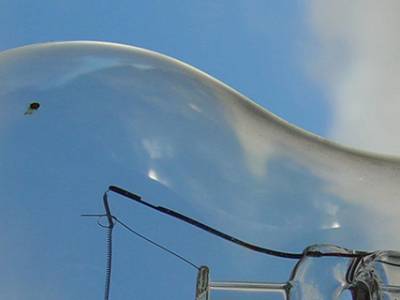Which Law School you consider has the best Intellectual Property LLM program in the US? I've heard about GWU and Berkeley, but I don't know.
LLM in Intellectual Property
Posted Jan 02, 2013 16:05
Posted Jan 02, 2013 21:26
Berkeley! For sure!
Great uni.. great program and good opportunities!
Great uni.. great program and good opportunities!
Posted Jan 02, 2013 21:38
Thank you GodBless :)
Posted Jan 02, 2013 23:47
Both are excellent programs and are well regarded for IP. You might find that the courses at GWU are more practice-focused whereas Berkeley tends to be more theory. Also note that GWU is in Washington DC, so close to the US Patent & Trademark Office, Copyright Office, Supreme Court, etc.
Posted Jan 03, 2013 03:18
Thank you a lot for your response.
Posted Jan 03, 2013 15:45
Stanford has the best IP program in US. However it's got a very small class size, 15 the last time I checked. Berkeley has good copyright faculty. Their Patent program is also good. GWU has a lot of patent courses. Both schools have extremely large class sizes and produce more than the market demand these days.
Posted Jan 05, 2013 20:25
what about harvard? I got 106 in toefl and I only depend on my background on IT and IP law. So you think I have a chance with this toefl score?
Posted Jan 23, 2013 18:08
As per the latest rankings available on USNEWS, it seems like Berkeley>Stanford>GWU. But the differences in the rankings are not that important at that level. You may want to consider other factors.
I personally lived in the Bay Area (where Berkeley and Stanford are located) and I would probably choose Stanford over Berkeley because it's located in Palo Alto, near most of the large IP law firms (not to mention Facebook, Google, Yahoo and so on...) while Berkeley is a bit further up North East.
Now, as far as GWU, many people say it's interesting because it's located near the UPSTO. I dont know how I feel about that argument and how relevant it would be as far as career prospects afterwise...
And with regards to Harvard, there's no model applicant, I'd just say that the good law schools usually expect a score of at least 100, but that apparently a score closer to 110 is actually what the likes of Stanford and Harvard look for. In light of that, 106 is good I think.
Good luck!
I personally lived in the Bay Area (where Berkeley and Stanford are located) and I would probably choose Stanford over Berkeley because it's located in Palo Alto, near most of the large IP law firms (not to mention Facebook, Google, Yahoo and so on...) while Berkeley is a bit further up North East.
Now, as far as GWU, many people say it's interesting because it's located near the UPSTO. I dont know how I feel about that argument and how relevant it would be as far as career prospects afterwise...
And with regards to Harvard, there's no model applicant, I'd just say that the good law schools usually expect a score of at least 100, but that apparently a score closer to 110 is actually what the likes of Stanford and Harvard look for. In light of that, 106 is good I think.
Good luck!
Posted Feb 20, 2013 17:00
I looked into the GW Intellectual Property LLM 18 years ago when I was practicing IP in the Washington DC area. The program was excellent then and it has been around for more than 20 years. Berkeley's web site claims that it's IP program has been around for 10 years (not sure if that means JD or LLM).
I know nothing about Standford's IP LLM program. (The campus is beautiful, however. And I agree that the location is great).
One deciding factor would be whether you want to try to find work with Silicon Valley tech companies (either as corporate counsel or law firm client)--this might make you lean more towards Berkeley or Stanford; or whether you want to work in the DC office of a BigLaw firm and gain experience practicing before government agencies--USPTO and Copyright Office--this might make you lean more towards GW. And that practice experience would be valuable for career growth prospects.
Location plays a role, because firms know their local schools better, but a degree from any of the top three would be perceived well anywhere in the country.
One other thing--IP cases appealed from the USPTO (patent application denials, patent infringement, trademark infrimgement, unfair trade practices, etc.) are tried in the Eastern District of Virginia--known as the Rocket Docket. It traditionally has been the fastest docket in the country. It is a court that accelerates IP cases; and litigation from start to finish averages less than 12 months compared to an average of nearly 24 months in other courts. Discovery typically is expected to be completed within 3 months, regardless of how complex the case. Plus the court has one of the most advanced in-court evidence presentations systems in the country. And it has judges who hear IP cases all the time, so they know the technical issues that arise in patent cases. Finally, even counsel outside of the jurisdiction who appeal USPTO cases need local counsel admitted to the court to do most of the heavy lifting--more so than other court jurisdictions according to the rules of the US Dist Ct for Eastern Dist of Va. So local counsel admitted to the court are involved in cases beyond what their local firm is able to attract.
If you want to practice intense patent litigation and you want to get to court right away and be involved in more cases in 5 years than most attorneys get in 10 years, then GW might be your best choice.
There's a lot to think about. Best of luck and let us know what you decide.
I know nothing about Standford's IP LLM program. (The campus is beautiful, however. And I agree that the location is great).
One deciding factor would be whether you want to try to find work with Silicon Valley tech companies (either as corporate counsel or law firm client)--this might make you lean more towards Berkeley or Stanford; or whether you want to work in the DC office of a BigLaw firm and gain experience practicing before government agencies--USPTO and Copyright Office--this might make you lean more towards GW. And that practice experience would be valuable for career growth prospects.
Location plays a role, because firms know their local schools better, but a degree from any of the top three would be perceived well anywhere in the country.
One other thing--IP cases appealed from the USPTO (patent application denials, patent infringement, trademark infrimgement, unfair trade practices, etc.) are tried in the Eastern District of Virginia--known as the Rocket Docket. It traditionally has been the fastest docket in the country. It is a court that accelerates IP cases; and litigation from start to finish averages less than 12 months compared to an average of nearly 24 months in other courts. Discovery typically is expected to be completed within 3 months, regardless of how complex the case. Plus the court has one of the most advanced in-court evidence presentations systems in the country. And it has judges who hear IP cases all the time, so they know the technical issues that arise in patent cases. Finally, even counsel outside of the jurisdiction who appeal USPTO cases need local counsel admitted to the court to do most of the heavy lifting--more so than other court jurisdictions according to the rules of the US Dist Ct for Eastern Dist of Va. So local counsel admitted to the court are involved in cases beyond what their local firm is able to attract.
If you want to practice intense patent litigation and you want to get to court right away and be involved in more cases in 5 years than most attorneys get in 10 years, then GW might be your best choice.
There's a lot to think about. Best of luck and let us know what you decide.
Posted Feb 21, 2013 12:01
Except one year, Berkeley is ranked by the US News as number 1 since it produces IP Law School ranking.
Posted Mar 21, 2013 22:45
(Caveat - I am currently at Stanford so I may be biased, but last year I had to choose between going to Berkeley and Stanford).
Berkeley may have the no. 1 ranking but Stanford has great IP faculty. Mark Lemley, Paul Goldstein and visiting prof. from Berkeley, Rob Merges who we hope will join the faculty here. Currently apart from Peter Menell, there is no notable faculty at Berkeley.
Further the brand matters. And let's be honest, so does exclusivity. Berkeley increased its intake of students last year by about 50. Stanford increased it by 7 per program - only because they cancelled one program.
Hope this helps.
Berkeley may have the no. 1 ranking but Stanford has great IP faculty. Mark Lemley, Paul Goldstein and visiting prof. from Berkeley, Rob Merges who we hope will join the faculty here. Currently apart from Peter Menell, there is no notable faculty at Berkeley.
Further the brand matters. And let's be honest, so does exclusivity. Berkeley increased its intake of students last year by about 50. Stanford increased it by 7 per program - only because they cancelled one program.
Hope this helps.
Posted Mar 24, 2013 22:13
Hi,
So firmly what is the capacity for the LST in Stanford for 2013-14?
So firmly what is the capacity for the LST in Stanford for 2013-14?
Posted Apr 09, 2013 07:23
Hello guys
What is the cheapest universities in US provide LLM program in Intellectual Property or arbitration or international private law
What is the cheapest universities in US provide LLM program in Intellectual Property or arbitration or international private law
Posted Apr 16, 2013 01:34
The cheapest LLM in Intellectual Property is, by far, Cooley's online LLM. It is $650 a credit hour. Now Cooley is probably the lowest ranked law school in the U.S.; however, it is the cheapest.
Related Law Schools
Other Related Content
Aiming for the US Bar Post-LLM? Don’t Miss This Event
News Jan 15, 2024
The LL.M. in Intellectual Property Law
Article Sep 16, 2007
Plenty of quality programs to choose from in this rich and growing field of law
Hot Discussions
-
Stanford 2024-2025
Nov 07, 2024 35,013 117 -
MIDS - 2024-25
Nov 15 12:52 AM 1,824 16 -
I got accepted bu for the Dresten üni LLM in IP LAW
Oct 20, 2024 721 8 -
Harvard LLM 2025-2026
Nov 12 07:52 PM 1,521 5 -
LL.M. Scholarship Rates?
Nov 09, 2024 2,481 5 -
NUS LLM cohort 2025/26
Nov 03, 2024 407 4 -
EU citizen barred in the US -- will an LLM from an EU school help me practice law somewhere in the EU?
Nov 15 12:58 AM 119 4 -
NUS vs Peking
Nov 09, 2024 173 4





